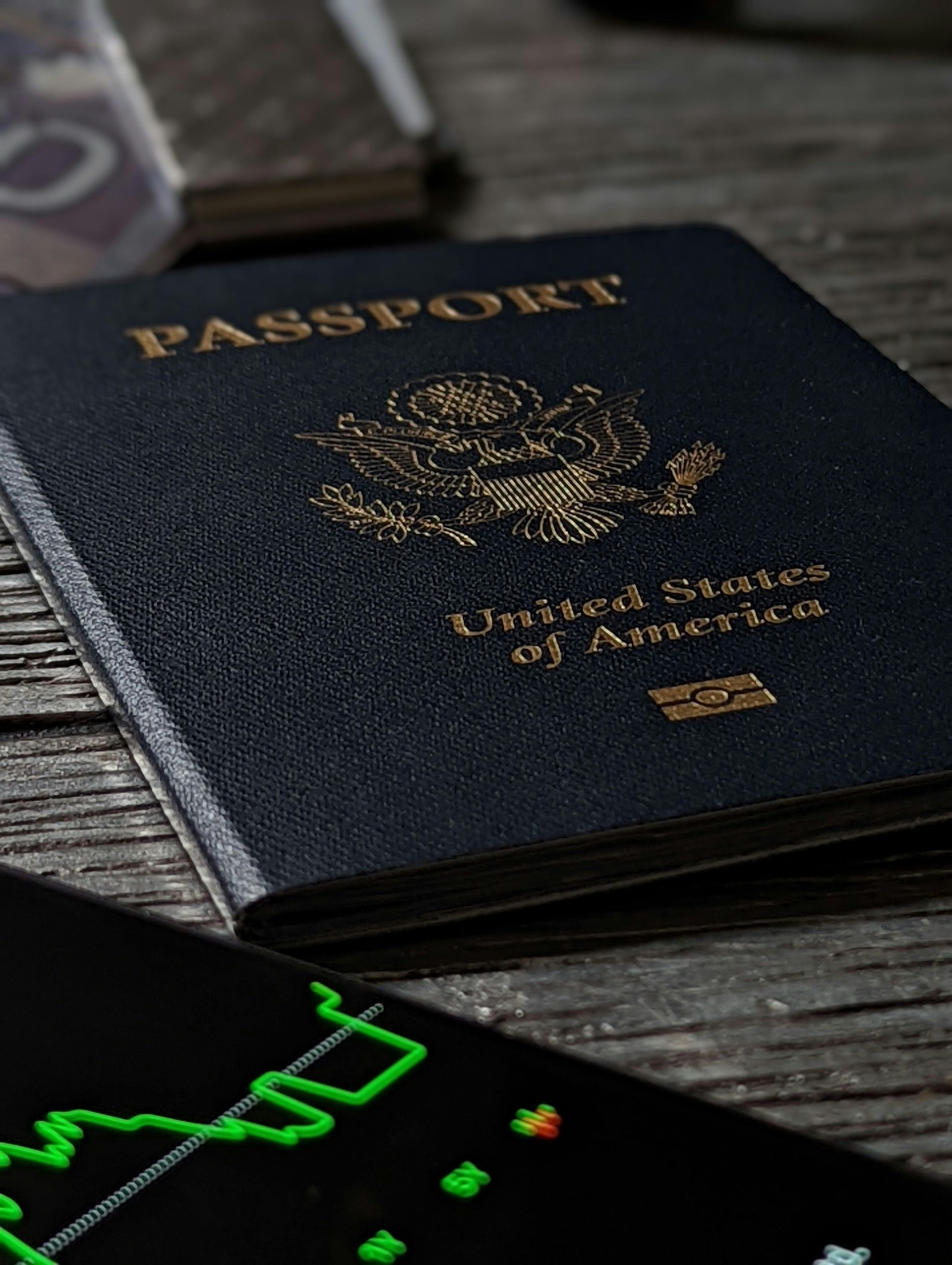December 10, 2025
On November 19, 2025, the Department of Homeland Security (DHS), through USCIS, published a Notice of Proposed Rulemaking (NPRM) titled “Public Charge Ground of Inadmissibility” (DHS Docket No. USCIS-2025-0304). The proposal would rescind most of the 2022 Public Charge regulations and give immigration officers much broader discretion to decide when an applicant is “likely at any time to become a public charge.” For immigrants seeking a green card through family-based or employment-based petitions, this signals a more searching review of financial stability, self-sufficiency, and prior use of public benefits—both for the applicant and, indirectly, for their financial sponsors. 1. Quick Refresher: What Is the Public Charge Rule? Under INA § 212(a)(4), a person can be denied a visa or green card if an officer believes they are “likely at any time to become a public charge.” This ground of inadmissibility applies to many people applying for: Immigrant visas through U.S. consulates abroad Adjustment of status (Form I-485) inside the United States The 2022 Public Charge Final Rule (under the prior administration) took a relatively narrow approach. It focused on whether a person would be primarily dependent on: Certain cash assistance for income maintenance, or Long-term institutionalization at government expense, and limited which public benefits counted against an applicant. The new 2025 proposal undoes that framework and moves back toward a much more flexible, officer-driven approach. 2. What USCIS Is Proposing to Change a. Rescinding the 2022 Regulatory Framework The NPRM explicitly proposes to remove the core 2022 public charge regulations at: 8 C.F.R. § 212.20 (applicability), § 212.21 (definitions), § 212.22 (public charge determination), and § 212.23 (exemptions and waivers). DHS states that the 2022 rule “straitjacket[s] DHS officers’ ability” to make decisions consistent with Congress’s welfare and immigration policies, and that it used narrow definitions and limited which benefits officers could consider. Instead, DHS wants officers to: Consider all mandatory statutory factors in INA § 212(a)(4)(B), Weigh all individualized, case-specific facts, and Use “any empirical data relevant to an alien’s self-sufficiency” as part of a totality-of-the-circumstances test. DHS also makes clear that rescinding the 2022 rule will “restore ultimate discretion” to officers to consider any information they deem relevant to public charge. b. Moving Away From a Narrow “Primary Dependence” Standard The proposal would move away from a bright-line “primary dependence” standard and remove limitations that focused only on cash assistance and long-term institutionalization. The NPRM explains that under the 2022 rule, officers could not easily find someone inadmissible even if they were using multiple means-tested benefits to meet their needs, because the rule’s definitions were too restrictive and did not fully capture whether a person was truly self-sufficient. Under the new approach, officers would be allowed to consider a broader range of public resources as indicators of future dependence. c. Considering Any Current, Past, or Future Use of Means-Tested Public Benefits One of the most significant pieces of the NPRM is how it treats means-tested public benefits (for example, programs like Medicaid, SNAP, and certain other income- or resource-tested benefits): DHS states that any past receipt of means-tested public benefits can be “a key gauge” of the likelihood of future dependence, even if the person received those benefits while in a status that was exempt from public charge at the time. Officers could also consider the fact that someone is trying to receive, or has been approved or certified to receive, means-tested benefits in the future, because this is relevant to whether they are likely to rely on those benefits later. DHS proposes that “any means-tested public benefit received by an alien should be considered” for applicants adjusting in a category that is not exempt from public charge, regardless of the person’s prior status. In plain terms: any connection to means-tested public benefits—past, present, or future—can become part of the officer’s analysis if you are applying for a visa or green card in a category subject to public charge. d. Affidavits of Support: No Longer a Guaranteed Favorable Factor Under the 2022 regulations, a sufficient Affidavit of Support (Form I-864) from a qualifying sponsor had to be treated as a favorable factor in the public charge analysis. The new proposal explicitly states that, if the 2022 regulations are removed, officers would no longer be required by regulation to treat a sufficient Affidavit of Support as a positive factor. Instead, they will decide whether and how to consider it, case by case and in the totality of the circumstances. The rule also reminds the public that, separately, an I-485 must still be denied if a required Affidavit of Support is missing or insufficient under the statute—but a “sufficient” form will not automatically tip the scales in your favor. e. Public Charge Bonds DHS also proposes changes to public charge bonds at 8 C.F.R. § 103.6: Receipt of any means-tested public benefit, or failure to comply with any condition of the bond, would be treated as a breach of that bond. DHS would remove language allowing USCIS to cancel a bond simply because the person is “not likely at any time to become a public charge.” f. DHS Expects Reduced Use of Public Benefits DHS’s own economic analysis predicts that the proposal could lead many immigrants and mixed-status families to disenroll from or forgo enrollment in public benefits, resulting in an estimated $8.97 billion per year decrease in federal and state transfer payments. Advocacy and policy groups have warned that such changes could create strong “chilling effects” on healthcare and safety-net use in immigrant communities. 3. What This Means for Green Card Applicants Family-Based Applicants (Inside and Outside the U.S.) If you are applying for a green card through a family petition, whether through consular processing abroad or adjustment of status inside the U.S., public charge has always been a factor. Under this proposal: Officers would have wide latitude to review your entire financial picture, including income, assets, debts, work history, education, and health as they relate to self-sufficiency. Any past or current use of means-tested benefits, or even an application to receive them in the future, could be treated as a negative factor in the public charge analysis if your category is not exempt. Your sponsor’s Affidavit of Support will still be required where the law demands it, but it may not be enough by itself to overcome other concerns about self-sufficiency. Officers will not be obligated to treat a “sufficient” I-864 as a positive factor. In practical terms, sponsors may be expected to demonstrate stronger, well-documented financial capacity—stable income well above 125% of the poverty guidelines, consistent tax filings, and credible proof of assets—to reassure officers who have more discretion to say “no” when they believe an applicant may rely on public benefits in the future. This interpretation flows from DHS’s emphasis on broad discretion and totality-of-the-circumstances review, even though the NPRM does not itself re-write the I-864 statute. Employment-Based Applicants Employment-based applicants are also subject to INA § 212(a)(4) Public Charge unless specifically exempt. Under this proposal, officers will be empowered to look beyond the job offer alone and examine: The stability and level of the offered wages, The employer’s ability to pay (as already required in other contexts), and Your own prior use of benefits, health, and financial history as indicators of long-term self-sufficiency. This may result in closer questioning and a more aggressive review of the “total picture” for both family- and employment-based green card applicants. 4. Why Careful Financial Planning — and Legal Counsel — Matters A public charge denial of a visa or green card is not a minor issue. It can: Result in denial of your immigrant visa or adjustment of status, and If you are inside the U.S. and do not have valid underlying status, a denied green card application can place you at risk of being placed into removal (deportation) proceedings in immigration court. Given the expanded discretion outlined in the NPRM, it is more important than ever to: Review all financial documents carefully before filing. Tax returns, W-2s/1099s, pay stubs, bank statements, asset documentation, and evidence of employment stability should be consistent, accurate, and complete. Analyze household and sponsor benefit use. If you, your sponsor, or your household have used means-tested public benefits, you should understand how that may be viewed and prepare a coherent explanation and risk strategy before filing. Avoid guessing or self-diagnosing eligibility. Because officers will be allowed to consider any relevant facts and interpret them under internal “policy and interpretive tools” that are not yet public, it is risky to rely on outdated assumptions about what “counts” as public charge. Work with an experienced immigration attorney. A lawyer can help you: Identify red flags in your financial and benefit history, Strategically prepare your Affidavit of Support and supporting evidence, Present a clear, consistent narrative of self-sufficiency, and Protect your interests if a denial could lead to removal proceedings. 5. Final Note: This Is Still a Proposal This 2025 public charge rule is currently a proposed rule, not yet in effect. DHS is accepting public comments and may make changes before issuing a final rule. However, the proposal makes the administration’s direction clear: More officer discretion, Broader consideration of public benefits, Likely expansion of immigration bonds to issue Green Cards, and A renewed focus on ensuring that immigrants are seen as self-sufficient and financially stable when applying for permanent residence. If you are planning to apply for a green card—whether through family, employment, or another pathway—this is the time to review your financial profile and strategy with counsel before you file.













